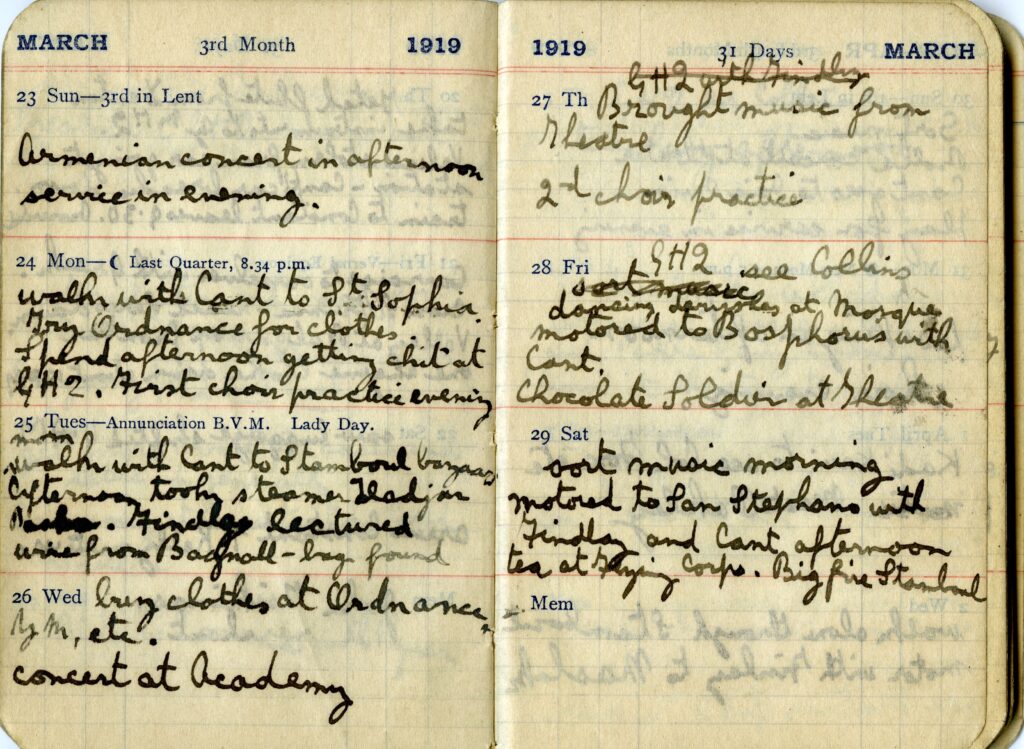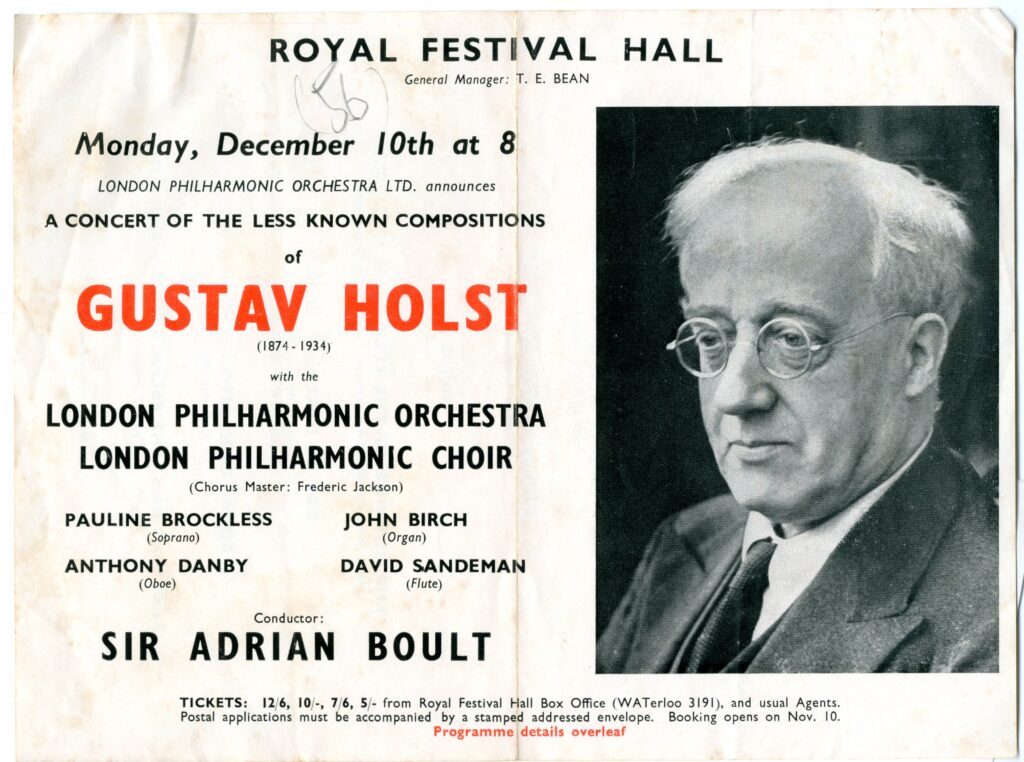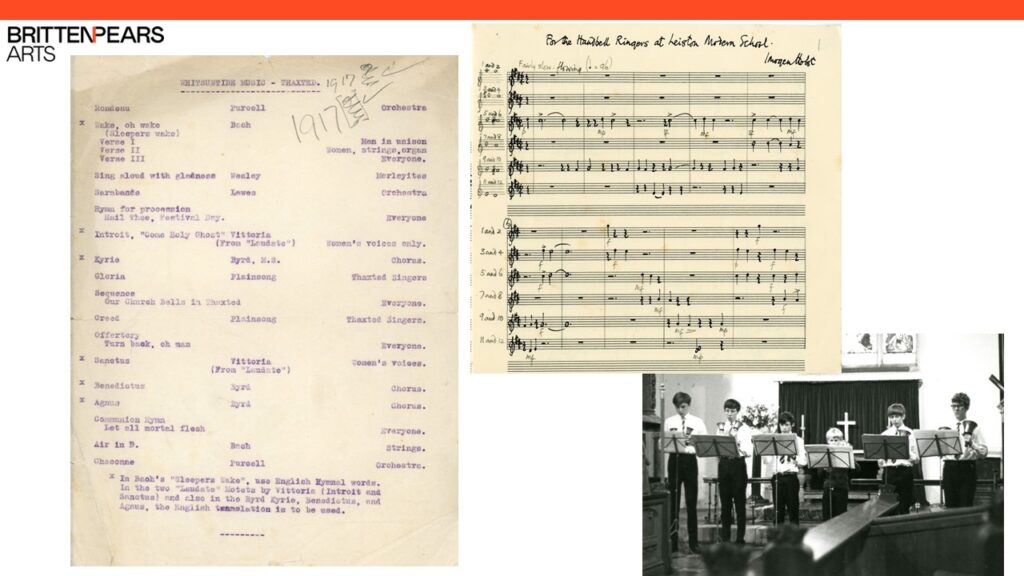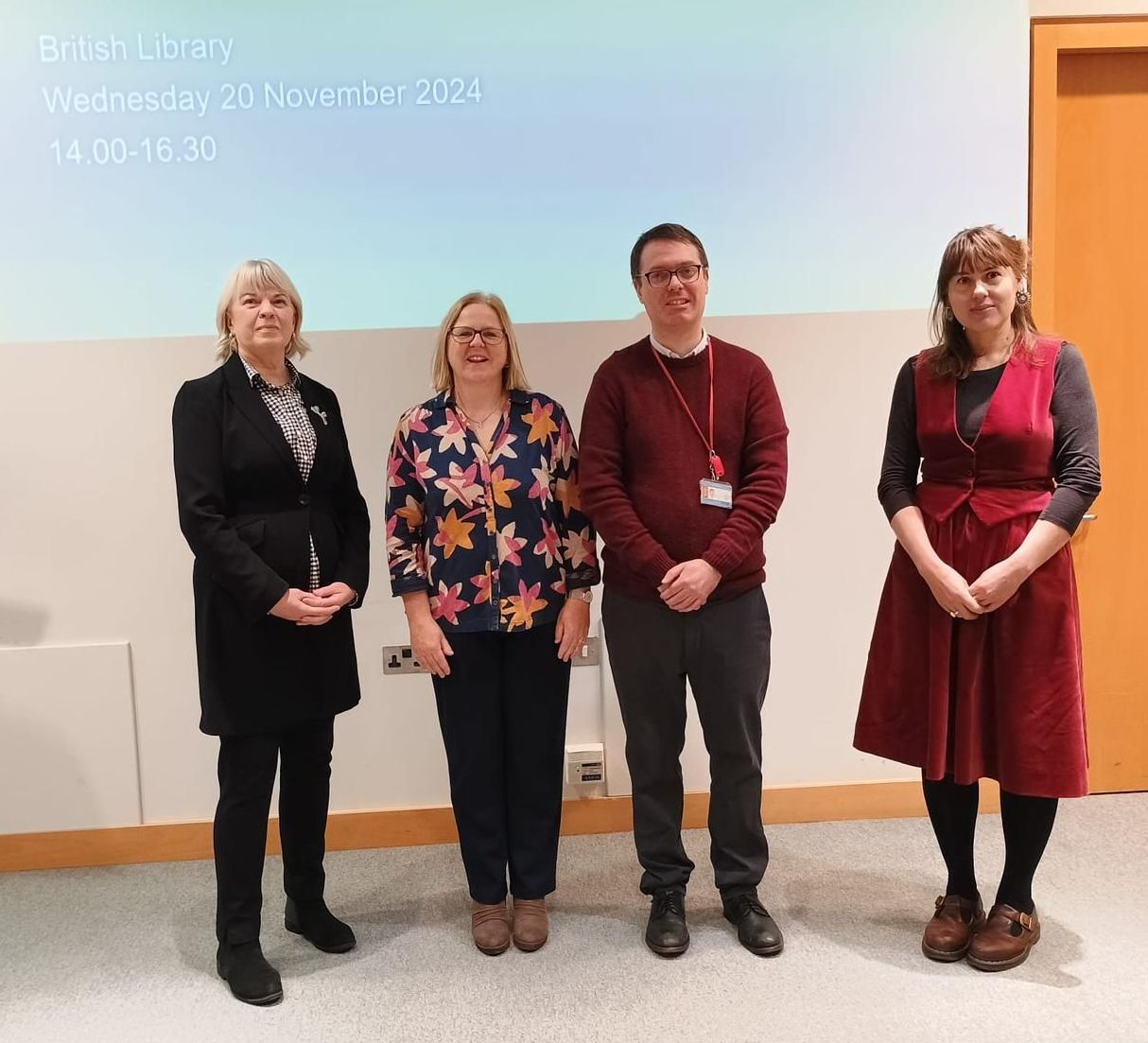The following is a guest post from Judith Ratcliffe, Archivist, Britten Pears Arts:
On 20 November the British Library held a very enjoyable and interesting afternoon to celebrate the 150th anniversary of Gustav Holst’s (1874-1934) birth. The event ‘Gustav Holst: An Archival Legacy’ put the focus on archival sources, with speakers from three institutions delving into their respective collections: Laura Kinnear, curator at the Holst Victorian House; Chris Scobie from the British Library and myself as archivist at Britten Pears Arts. To round the afternoon off we heard from perspective of a reader, Holst specialist Philippa Tudor, whose research has drawn on archival collections far and wide. We were also treated to a performance of works by Gustav and his daughter Imogen Holst by musicians from the Royal College of Music.
I was pleased to talk about the resources held in the Britten Pears Arts archive relating to Holst, as well as the important role Imogen Holst (1907-1984) played in promoting and shaping her father’s legacy. Although our archive at the Red House in Aldeburgh centres around the papers of composer Benjamin Britten and his partner, the tenor Peter Pears, we also collect papers of creatives who were part of their circle including Imogen who moved to Aldeburgh in 1952 to work as Britten’s musical assistant. The core of our Holst collection is Imogen’s own music manuscripts and papers which document her multi-faceted career and wide-ranging achievements as composer, teacher, conductor, musicologist, writer, speaker, and administrator.

The collection also includes important music manuscripts of her father, as well as notable personal papers – his diaries, notebooks and letters – which Imogen kept with her in her Aldeburgh home. After her father’s death, Imogen decided to dedicate herself to preserving her father’s legacy and promoting his music. This work gathered pace from 1964, when she gave up her post as Britten’s assistant partly to concentrate on the build-up to Gustav’s centenary year in 1974. Imogen spent a huge amount of time and energy on this work: writing books, articles and programme notes; making new and revised editions of Gustav’s works; and arranging performances and recordings. All of this work is recorded in Imogen’s papers, providing extensive resources for researchers.

I finished my talk by illustrating ways in which Imogen carried forward her father’s legacy through her wider work – by furthering their shared interests and ideals. Their shared enthusiasm, for example, for our folk music and song heritage, as well as early music, means that parallels can be drawn through their work and now through their papers. Of particular importance is the important contribution both father and daughter made to the democratisation of music. Both were enthusiastic about writing for and working with students and amateurs. Both were committed to the development of music education and community music-making.

The Holst papers held in the Britten Pears Arts archive represent the most significant father-daughter relationship in 20th-century British music and culture. This relationship sits at the core of the collection adding extra significance to the unique sources. I was pleased to showcase these resources to the afternoon’s attendees and if you wish to know more please search our online archive catalogue or get in touch. Thanks to Chris Scobie for an absorbing afternoon.
Judith Ratcliffe
(Archivist, Britten Pears Arts, archive@brittenpearsarts.org)
